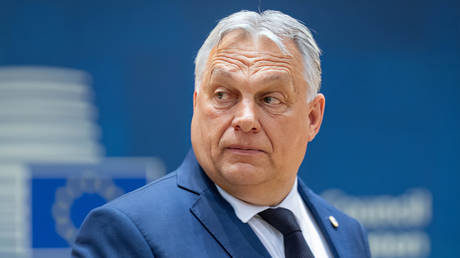
The problem of rising prices is the latest worry for the global economy, causing hardship for billions of people. Why is this happening and what can be done to prevent things spiraling out of control?
Why are we suddenly hearing so much about inflation?
Inflation, which for a few decades many economists felt had finally been tamed by the use of sophisticated modern monetary policies, is back in the news because prices are rising in the United States at the fastest rate since 1982.
Rising prices spook everyone, from consumers, to economists, to bankers, to politicians, in part because inflation causes regular people to become rapidly unhappy with the status of their own lives due to the increased cost of everyday items.
A recent Gallup survey of people making less than $100,000 a year in the US found that “47% of these households [are]reporting hardship due to increased consumer prices,” according to CNBC.
That’s a lot of unhappy people, as the median household income in the US is around $68,000 per year.
How did this happen?
There are several things happening that have combined to create this inflationary environment.
Generally, inflation is caused by too much money chasing too few goods and services in the marketplace.
The result is that prices start to accelerate rapidly.
The world central banks, led by the US Federal Reserve, have injected an unprecedented amount of money into world economies, as a way of combating the expected economic downturn caused by the Covid-19 lockdowns.
Contributing to that rise in the US were the massive financial stimulus measures that were enacted first by President Trump and then by President Biden that put huge amounts of money directly into bank accounts.
In the US alone, money supply rose $5.7 trillion or 38%, from near $15.5 trillion to over $21 trillion in a little more than a year, at a time when the economy wasn’t making any money.
That $5.7 trillion has finally found its way into the economy and is now chasing a limited amount of goods and services prices upward, hence the rapid rise in inflation.
So, it’s just too much money?
No, not quite.
The inflation we are experiencing now is also a consequence of not having the robust worldwide supply chain that we have come to depend on over the past few decades.
“Manufacturers, farmers, restaurants and retailers relied on what they needed to be delivered ‘just in time.’ They got just what they needed, just when they needed it; this kept down their inventory costs and made the economic machine as efficient as possible,” said the American Farm Bureau.
For several decades that system helped keep prices low and inflation at bay.
The Covid quarantines – and global decoupling from China – broke this worldwide machine and the supply chain that used to keep prices down is now contributing to higher prices, because it’s either producing or delivering too few goods and services.
And, finally, in what’s known as “death spiral inflation,” workers are agitating for higher wages to keep pace with inflation, which, when granted, contribute to higher inflation as rising labor costs have to be figured into prices for goods and services. This is repeated ad infinitum until the economy collapses – unless measures are taken to cool it off.
How will the global economy be cooled off?
In order to tame rising prices, world central bankers, led by the US Federal Reserve, will try to cut off or moderate the flow of new money into economies mostly by raising interest rates.
“The latest strong inflation report strengthens the case for Federal Reserve officials to agree next week to accelerate the wind-down of their stimulus efforts, clearing the way for them to potentially lift interest rates in the spring,” said the Wall Street Journal.
That means that not only it will be more expensive to borrow money for everyone all over the world, from governments, to corporations, to homeowners, to students, but the economic growth that we all rely on will be dialed back considerably.
There were already signs that the worldwide economy’s expected recovery from the effects of Covid was going to be slower than anticipated next year.
“China achieved a truly remarkable recovery, but its growth momentum has been slowing notably,” warned the International Monetary Fund (IMF) earlier in December, impacted in part by the persistence of the Covid virus according to Barrons.
“Even before the arrival of this new [Omicron] variant, we were concerned that the recovery, while it continues, is losing somewhat momentum,” said IMF Managing Director Kristalina Georgieva, according to Agence France-Press.
And now Fitch’s rating service has lowered its global economic growth forecast for both 2021 and 2022 from 6% to 5.7% and 4.4% to 4.2% respectively, mentioning US inflation as a prime culprit in the cut.
“The sharp rise in global consumer goods prices since March primarily reflects a huge surge in goods demand, fueled by stimulus measures, particularly in the US,” said Fitch’s. “The scale and longevity of the global inflation shock has taken most forecasters and central banks by surprise and is bringing forward the start of global monetary policy normalization.”
“Global monetary policy normalization” in this case means higher interest rates and less money for world economies.
What does that mean for me?
It means that you should try to make your life as normal as possible.
If you don’t have a job now, find one; if you are offered a job, take it; and if you have a job, keep it.
The global economy will likely continue to grow above historic norms for a few years more, even with higher interest rates.
“This is still the fastest rate [of world economic growth]since 1973… and far from stagflation,” said Fitch’s.
But as we’ve seen over the last few years, there are few guarantees for people in world that waits for normalization beyond just its monetary policy.




